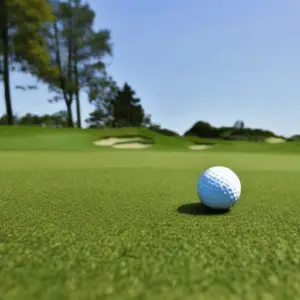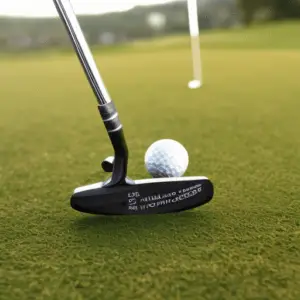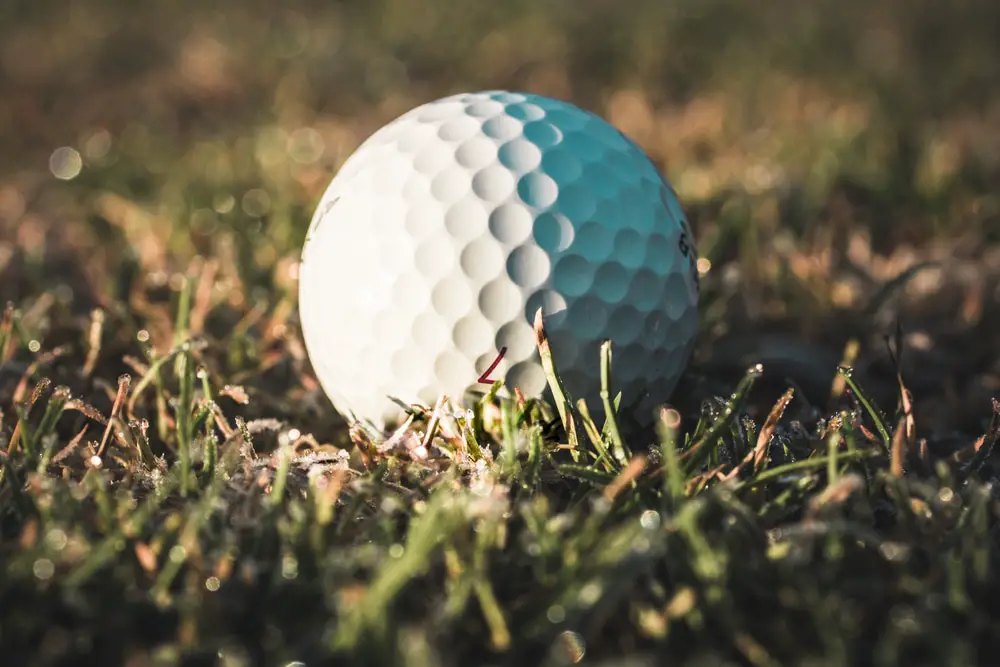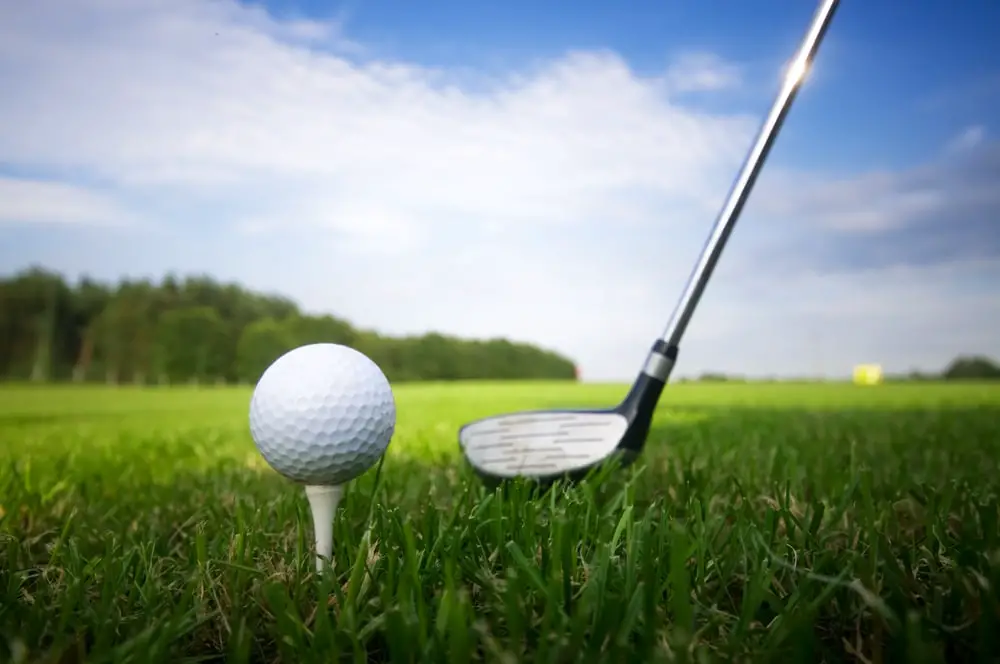Last Updated on November 30, 2023
Golfers, have you ever wondered what the difference is between soft and hard golf balls? Well, look no further. Soft golf balls are a unique type of ball that offer many benefits over their harder counterparts. But they also come with some drawbacks as well. We’ll be exploring everything there is to know about soft golf balls in this blog post, so keep reading to find out more. From how they can improve your game to fun facts about them, we’ve got all the information you need right here on our website. And if you’re also interested in softball, click for softball trading pins. So don’t miss out – dive into this post and learn all about why soft golf balls might just be the perfect choice for your next round of 18 holes.
Table of Contents:
- Soft Golf Balls Explained
- Benefits of Soft Golf Balls
- Drawbacks of Soft Golf Balls
- FAQs in Relation to What Are Soft Golf Balls
- Conclusion
Soft Golf Balls Explained
Soft golf balls are a type of ball specifically designed for golfers who want to achieve maximum distance and accuracy. They have a softer core than traditional hard golf balls, which allows them to compress more when struck by the club head. This compression results in greater energy transfer from the club head to the ball, resulting in longer drives and straighter shots.
Soft golf balls have been around since at least 1848 when Englishman William Taylor patented his design for a rubber-cored ball made from gutta-percha, a type of natural rubber. Today’s modern versions are made from synthetic materials such as Surlyn® and ionomer resins, which provide improved performance characteristics while still offering good durability over time – something William Taylor could only dream about.
Soft golf balls can be an invaluable tool for improving your game, and with the right knowledge, you can reap many benefits from using them. Let’s take a closer look at what those advantages are in the next section.
Benefits of Soft Golf Balls
Soft golf balls are becoming increasingly popular among golfers of all skill levels. While the majority of players still use traditional hard golf balls, soft golf balls offer a number of advantages that can help you improve your game.
Provide Greater Distance
One major benefit to using soft golf balls is increased distance off the tee. Softballs have larger cores and softer covers, which allow them to compress more easily when struck with a driver or fairway wood. This compression leads to higher launch angles and faster ball speeds, resulting in greater distances for your shots.
Improved Spin Control
Another advantage is improved spin control around the greens. The softer cover on a softball allows it to grab onto the clubface better than harder models, leading to more consistent spin rates and enhanced accuracy on approach shots into the green as well as chip shots from just off the putting surface.
Added Feel Around the Greens
Softballs also provide added feel when chipping and pitching around the green due to their softer construction compared with regular hardballs. This extra feedback helps you make adjustments during practice sessions so that you can become even more accurate with these types of shots over time.
Better Results Out of Bunkers

Finally, many players find that they get better results out of bunkers when using softballs due to their lower compression rating compared with other types of balls on the market today. Lower compression means less energy is lost upon impact, allowing for longer carries out of sand traps while maintaining good control over trajectory and the spin rate at landing sites near pins or hazards such as water hazards or deep roughs located beyond them.
Soft golf balls offer a variety of benefits, from increased control and accuracy to greater spin and distance. However, as with all things, there are drawbacks that must be considered before making the switch; let’s take a look at those now.
Drawbacks of Soft Golf Balls
However, there are some drawbacks that come with using soft golf balls.
Durability
Soft golf balls tend to be less durable than harder ones. The softer the ball is, the more quickly it will wear down over time. This means you may need to replace your soft golf balls more often than other types of balls, which can add up in cost over time.
Cost
Soft golf balls tend to be more expensive than other types of golf balls because they require specialized materials and production processes. If you’re on a budget or just starting out in the game, these higher costs may make them difficult to afford on a regular basis.
Performance

While soft golf balls offer excellent spin and control around the green, they don’t always perform as well off the tee as harder models do when it comes to distance and accuracy. They also have a tendency to balloon in windy conditions since they lack speed off the clubface compared with firmer models – making them less ideal for playing in strong winds or gusts of wind during playtime rounds at your local course
Although soft golf balls can offer a variety of benefits, it is important to consider the drawbacks before making your decision. From reduced distance and spin control to increased fragility, there are several things to take into account when selecting a ball.
FAQs in Relation to What Are Soft Golf Balls
What is a soft golf ball good for?
A soft golf ball is ideal for players who want to maximize their distance off the tee. The softer compression of the ball allows it to compress more on impact, resulting in a higher launch angle and increased spin rate. This gives players an advantage when trying to reach longer distances with their drives. Additionally, a soft golf ball can be beneficial for those who struggle with accuracy due to its lower spin rate and reduced sidespin, which helps keep shots straighter. Finally, a soft golf ball is great for beginners as it provides more feel around the greens making chipping and putting easier.
Are soft golf balls more forgiving?
Soft golf balls are indeed more forgiving than hard golf balls. Soft golf balls have a larger surface area, which helps to reduce the spin rate and create less backspin when hit off-centre. This reduces the amount of side spin that can cause slices or hooks, resulting in straighter shots with more accuracy. Additionally, soft golf balls compress upon impact, creating a trampoline effect that launches the ball further down the fairway for increased distance. With these advantages combined, it’s easy to see why soft golf balls are often preferred by players looking for greater forgiveness on their shots.
Is a Pro V1 hard or soft?
The Pro V1 golf ball is a multi-layer, urethane-covered ball that provides a soft feel and excellent spin control. It has been designed to provide maximum distance off the tee with low spin rates on full shots. The compression of the core and cover combination gives it an overall softer feel than most other balls in its class, making it easier to compress for increased distance. However, compared to some of the harder two-piece golf balls out there, the Pro V1 may still be considered slightly hard by some players who prefer more firmness from their golf balls.
Conclusion
They provide more control and spin, allowing you to hit the ball with greater accuracy and distance. While they may not be suitable for all types of play, soft golf balls can be an invaluable tool in your arsenal when it comes to improving your game. So if you’re looking for a way to take your golfing skills up a notch, consider giving soft golf balls a try.


